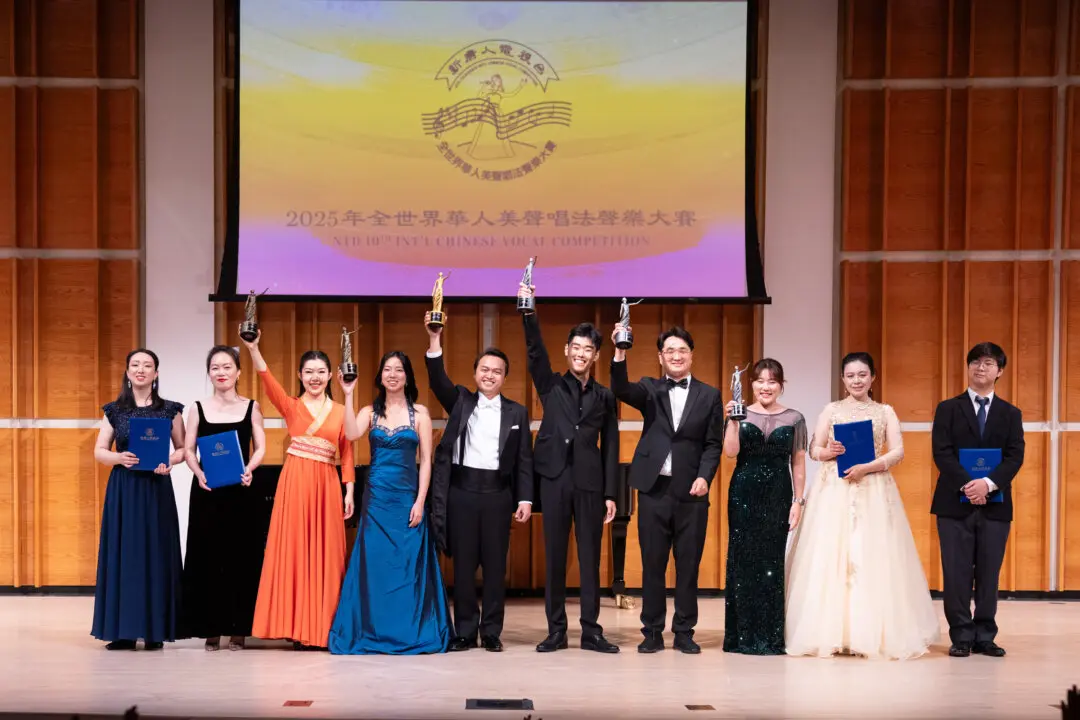NTD’s 11th International Classical Chinese Dance competition continued at the Sugar Loaf Performing Arts Center in Chester, New York.
After junior dancers opened the stage on Thursday, adult competitors brought their skill and expression to the spotlight on Friday.
Competitors from around the world performed in the preliminary rounds, each with a choreographed dance and a set of required techniques. For the adult divisions, that means higher difficulty—advanced leaps, flips, and dramatic storytelling.
“The biggest challenge is really the training process. I’ve competed many times before, but it’s been six or seven years since my last time. I know how grueling it can be—you often feel like giving up, or even that you’re dancing worse than before,” contestant Linjie Huang said. “It takes relentless effort. Even though I prepared myself mentally, going through it again still requires a lot of perseverance.”
Huang is a principal dancer with the renowned Shen Yun Performing Arts. She first competed in 2010. She says classical Chinese dance is more than just technique—it’s about combining skill with life experience.
“People often say a dancer’s career is short. But I feel I’m only just starting to have life experiences worth sharing,” Huang said. “If my body can’t keep up, I can’t show that on stage. So I push myself to keep my body strong, and combine that with the maturity of my life experience to present something more meaningful on stage.”
Classical Chinese dance emphasizes something called “bearing”—described as the cultural depth and inner feeling behind every movement. Dancers say it grows naturally with life experience.
“When I was younger, my movements were standard enough, but I lacked expression. That inner quality—the flavor, even a person’s temperament—comes with age,” Huang said. “As you accumulate more life experience, it naturally shows in your dancing, and others can feel it.”
Another contestant, Shangzhi Xu, explained how his past experience helped him embody the moment a historical character decides to join the army, by drawing on his own journey of choosing a dance career.
“To portray this character, I have to show his hesitation as he holds the brush—he doesn’t know what the future holds. Then he realizes there is another path,” Xu said.
“There’s one movement in this piece that I really love: after he puts the brush down, he salutes, and it’s not just a gesture of his profession. It’s a symbolic giving of his regards to generations of his ancestors, that he’s beginning something entirely new,” he said.
“The first time I saw this piece, I felt a deep resonance with Ban Chao, for stepping into something completely new, and that as long as you believe it’s right, you have to see it through to the end.”
For others, studying literature and cultivating inner character are just as important to their dance skills.
“When I read the Four Great Classical Novels, the characters are described with such detail—whether it’s the masculinity of men or the gentleness of women,” contestant Grace Huang said.
“I study the dialogue and actions to understand, for example, how in ancient times a shy young woman might lower her gaze. These details help me bring that authentic feeling into the dance,” she said.
Contestant Sunni Zhou said: “When you can’t get a movement right, it’s easy to get frustrated. But classical Chinese dance teaches you patience, even restraint. In the process of training, you’re not just improving the movements—you’re also cultivating your character. Only with a calm, positive mindset can you really bring out the true beauty and goodness of traditional culture.”
Beyond the training and performance, contestants say the competition also highlights something much larger—the value of preserving a traditional art form that’s little known in mainland China.
“I grew up in mainland China, but I had never even heard of classical Chinese dance there. People only know about folk dance, ballet, or opera. So when it comes to this kind of dance, especially in mainland China, it’s very rare,” Xu said.
“I feel that as an art form, it’s truly precious. I hope more people can come to know it. Even if they don’t dance, at least they can learn about it—so we can better understand and connect with our own culture.”







